SGT to IST to UTC to AEDT to KST
AEDT is NOT in use by many locations
AEST (Australian Eastern Standard Time) is used instead. Switch to AEST time zone or select one of the cities Sydney, Melbourne, Canberra) for automatic timezone change.Time Difference
Singapore Time is 2 hours and 30 minutes ahead of India Standard Time and 8 hours ahead of Universal Time Coordinated and 3 hours behind Australian Eastern Daylight Time and 1 hours behind Korea Standard Time
9:30 pm21:30 in SGT is 7:00 pm19:00 in IST and is 1:30 pm13:30 in UTC and is 12:30 am00:30 in AEDT and is 10:30 pm22:30 in KST
SGT to IST call time
Best time for a conference call or a meeting is between 10:30am-6pm in SGT which corresponds to 8am-3:30pm in IST
SGT to UTC call time
Best time for a conference call or a meeting is between 4pm-6pm in SGT which corresponds to 8am-10am in UTC
SGT to AEDT call time
Best time for a conference call or a meeting is between 8am-3pm in SGT which corresponds to 11am-6pm in AEDT
SGT to KST call time
Best time for a conference call or a meeting is between 8am-5pm in SGT which corresponds to 9am-6pm in KST
9:30 pm21:30 Singapore Time (SGT). Offset UTC +8:00 hours
7:00 pm19:00 India Standard Time (IST). Offset UTC +5:30 hours
1:30 pm13:30 Universal Time Coordinated (UTC). Offset UTC 0:00 hours
12:30 am00:30 Australian Eastern Daylight Time (AEDT). Offset UTC +11:00 hours
10:30 pm22:30 Korea Standard Time (KST). Offset UTC +9:00 hours
9:30 pm21:30 SGT / 7:00 pm19:00 IST / 1:30 pm13:30 UTC / 12:30 am00:30 AEDT / 10:30 pm22:30 KST
| SGT | IST | UTC | AEDT | KST |
|---|---|---|---|---|
| 12am (midnight) | 9:30 pm | 4pm | 3am | 1am |
| 1am | 10:30 pm | 5pm | 4am | 2am |
| 2am | 11:30 pm | 6pm | 5am | 3am |
| 3am | 12:30 am | 7pm | 6am | 4am |
| 4am | 1:30 am | 8pm | 7am | 5am |
| 5am | 2:30 am | 9pm | 8am | 6am |
| 6am | 3:30 am | 10pm | 9am | 7am |
| 7am | 4:30 am | 11pm | 10am | 8am |
| 8am | 5:30 am | 12am (midnight) | 11am | 9am |
| 9am | 6:30 am | 1am | 12pm (noon) | 10am |
| 10am | 7:30 am | 2am | 1pm | 11am |
| 11am | 8:30 am | 3am | 2pm | 12pm (noon) |
| 12pm (noon) | 9:30 am | 4am | 3pm | 1pm |
| 1pm | 10:30 am | 5am | 4pm | 2pm |
| 2pm | 11:30 am | 6am | 5pm | 3pm |
| 3pm | 12:30 pm | 7am | 6pm | 4pm |
| 4pm | 1:30 pm | 8am | 7pm | 5pm |
| 5pm | 2:30 pm | 9am | 8pm | 6pm |
| 6pm | 3:30 pm | 10am | 9pm | 7pm |
| 7pm | 4:30 pm | 11am | 10pm | 8pm |
| 8pm | 5:30 pm | 12pm (noon) | 11pm | 9pm |
| 9pm | 6:30 pm | 1pm | 12am (midnight) | 10pm |
| 10pm | 7:30 pm | 2pm | 1am | 11pm |
| 11pm | 8:30 pm | 3pm | 2am | 12am (midnight) |
| 0:00 | 21:30 | 16:00 | 3:00 | 1:00 |
| 1:00 | 22:30 | 17:00 | 4:00 | 2:00 |
| 2:00 | 23:30 | 18:00 | 5:00 | 3:00 |
| 3:00 | 0:30 | 19:00 | 6:00 | 4:00 |
| 4:00 | 1:30 | 20:00 | 7:00 | 5:00 |
| 5:00 | 2:30 | 21:00 | 8:00 | 6:00 |
| 6:00 | 3:30 | 22:00 | 9:00 | 7:00 |
| 7:00 | 4:30 | 23:00 | 10:00 | 8:00 |
| 8:00 | 5:30 | 0:00 | 11:00 | 9:00 |
| 9:00 | 6:30 | 1:00 | 12:00 | 10:00 |
| 10:00 | 7:30 | 2:00 | 13:00 | 11:00 |
| 11:00 | 8:30 | 3:00 | 14:00 | 12:00 |
| 12:00 | 9:30 | 4:00 | 15:00 | 13:00 |
| 13:00 | 10:30 | 5:00 | 16:00 | 14:00 |
| 14:00 | 11:30 | 6:00 | 17:00 | 15:00 |
| 15:00 | 12:30 | 7:00 | 18:00 | 16:00 |
| 16:00 | 13:30 | 8:00 | 19:00 | 17:00 |
| 17:00 | 14:30 | 9:00 | 20:00 | 18:00 |
| 18:00 | 15:30 | 10:00 | 21:00 | 19:00 |
| 19:00 | 16:30 | 11:00 | 22:00 | 20:00 |
| 20:00 | 17:30 | 12:00 | 23:00 | 21:00 |
| 21:00 | 18:30 | 13:00 | 0:00 | 22:00 |
| 22:00 | 19:30 | 14:00 | 1:00 | 23:00 |
| 23:00 | 20:30 | 15:00 | 2:00 | 0:00 |
Singapore Time
Offset: SGT is 8 hours ahead Greenwich Mean Time (GMT) and is used in Asia
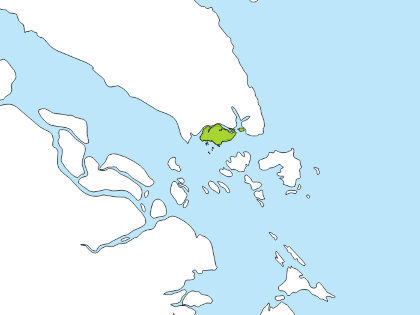
SGT representations, usage and related time zones
- +08 - basic short
- +0800 - basic
- +08:00 - extended
- +0800 - sign character (+) followed by a four digit time providing hours (08) and minutes (00) of the offset. Indicates eight hour and zero minutes time differences to the east of the zero meridian.
- Hotel - Military abbreviation for SGT
- H - short form of 'Hotel'
- Singapore Time - UTC +8
- South Georgia Time - UTC -2
- ACT - ASEAN Common Time
- AWST - Australian Western Standard Time
- BNT - Brunei Darussalam Time
- CAST - Casey Time
- CHOT - Choibalsan Time
- CST - China Standard Time
- H - Hotel Time Zone
- HKT - Hong Kong Time
- HOVST - Hovd Summer Time
- IRKT - Irkutsk Time
- KRAST - Krasnoyarsk Summer Time
- MYT - Malaysia Time
- PHT - Philippine Time
- SGT - Singapore Time
- ULAT - Ulaanbaatar Time
- WITA - Central Indonesian Time
India Standard Time
Offset: IST is 5 hours and 30 minutes ahead Greenwich Mean Time (GMT) and is used in Asia
Countries: It is used in following countries: India
Principal Cities: The largest city in the IST timezone is Mumbai from India with population about 12.692 million people. Other major cities in the area are Delhi, Bangalore, Kolkata, Chennai
Daylight Saving: India Standard Time (IST) is not adjusted for daylight saving therefore IST remains the same through out the year. This means, unlike some time zones where the clock is set forward by one hour every summer and backward by one hour during winter to adjust for daylight saving, India Standard Time remains the same
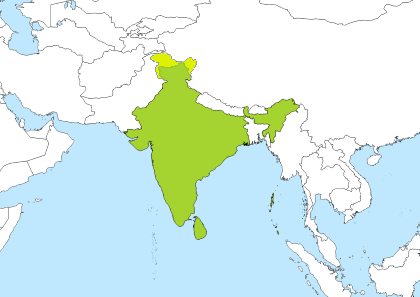
IST representations, usage and related time zones
- +0530 - basic
- +05:30 - extended
- +0530 - sign character (+) followed by a four digit time providing hours (05) and minutes (30) of the offset. Indicates five hour and thirty minutes time differences to the east of the zero meridian.
- Asia/Calcutta
- Asia/Kolkata
- India Standard Time - UTC +5:30
- Irish Standard Time - UTC +1
- Israel Standard Time - UTC +2
- Iran Standard Time - UTC +3:30
Universal Time Coordinated
Offset: UTC is 0 hours ahead Greenwich Mean Time (GMT) and is used in Universal
Coordinated Universal Time (UTC) is the world time standard that regulates clocks and time. It is successor to Greenwich Mean Time (GMT). For casual use, UTC is the same as GMT, but is used by the scientific community.
UTC is the time standard commonly used across the world since 1972. It is used in many technical fields, like aviation industry and meteorologists, also used to synchronize time across internet networks.
UTC representations, usage and related time zones
- Z - is the zone designator for the zero UTC/GMT offset, also known as 'Zulu' time
- +00 - basic short
- +0000 - basic
- +00:00 - extended
- +0000 - sign character (+) followed by a four digit time providing hours (00) and minutes (00) of the offset. Indicates zero hour and zero minutes time differences of the zero meridian.
- Zulu - Military abbreviation for UTC
- Z - short form of 'Zulu'
- Etc/UCT
- Etc/UTC
- Etc/Universal
- Etc/Zulu
- UCT
- UTC
- Universal
- Zulu
- EGST - Eastern Greenland Summer Time
- GMT - Greenwich Mean Time
- WET - Western European Time
- AZOST - Azores Summer Time
- UTC - Universal Time Coordinated
- WT - Western Sahara Standard Time
- Z - Zulu Time Zone
Australian Eastern Daylight Time
Offset: AEDT is 11 hours ahead Greenwich Mean Time (GMT) and is used in Australia
Countries: It is used in following countries: Australia
Principal Cities: The largest city in the AEDT timezone is Sydney from Australia with population about 4.627 million people. Other major cities in the area are Melbourne, Canberra, Newcastle, Wollongong
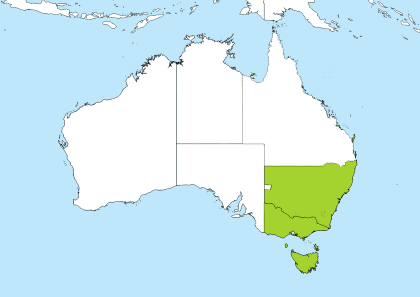
Daylight Saving: Australian Eastern Daylight Time (AEDT) is a daylight saving/summer time zone, however during winter some places adjust time for one hour back and observe Australian Eastern Standard Time (AEST).
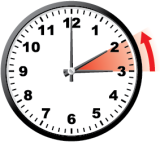 End: Australian Eastern Daylight Time (AEDT) has ended on Sunday, April 6, 2025 at 3:00 am local time and clocks were set one hour back to Sunday, April 6, 2025, 2:00 am local standard time instead. Daylight saving ends annually the on first Sunday of April
End: Australian Eastern Daylight Time (AEDT) has ended on Sunday, April 6, 2025 at 3:00 am local time and clocks were set one hour back to Sunday, April 6, 2025, 2:00 am local standard time instead. Daylight saving ends annually the on first Sunday of April
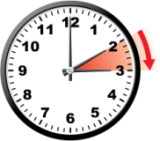 Start: Australian Eastern Daylight Time (AEDT) starts on Sunday, October 5, 2025 at 2:00 am local time and clocks are set one hour forward to Sunday, October 5, 2025, 3:00 am. Daylight saving starts annually the on first Sunday of October
Start: Australian Eastern Daylight Time (AEDT) starts on Sunday, October 5, 2025 at 2:00 am local time and clocks are set one hour forward to Sunday, October 5, 2025, 3:00 am. Daylight saving starts annually the on first Sunday of October
Australian Eastern Daylight Time (AEDT) is observer in New South Wales (except Broken Hill and Lord Howe Island), Victoria, Tasmania, Australian Capital Territory, Sydney, Melbourne, Hobart, Canberra AEDT is equal to Coordinated Universal Time plus 11 hours (UTC +11). During a summer time period, these locations move from AEST to Australian Eastern Daylight Time (AEDT), and clocks are advanced to UTC +11.
Daylight saving or summer time is commonly expressed as AEDT (Australian Eastern Daylight Time). In periods of daylight saving an hour is added to the Local Standard Time.
The regulation of time is a State Government responsibility. Changes to the period of daylight saving may be made by regulation. Legislation to harmonise daylight saving in NSW with the south-eastern states and the ACT was passed by the NSW Parliament on 23 October 2007.
History of daylight saving in New South Wales
Daylight saving operated nationally for single summer during World War I from 1 January 1917 to 25 March 1917 and during World War II for three summers in a row, starting on 1 January 1942.
Daylight saving was re-introduced for third time in New South Wales on 31 October 1971 after New South Wales Parliament passed the Standard Time Act 1971.
A referendum held on 1 May 1976 proposed that daylight saving should be on a permanent basis. The ballot paper stated:
"At present there is a period commonly called 'daylight saving' by which time is advanced by one hour for the period commencing on the last Sunday in October in each year and ending on the first Sunday in March in the following year.
Electors were then asked to answer YES or NO to the question: Are you in favour of daylight saving? 1,882,770 electors were in favour, 868,900 were against and 35,507 votes were informal.\"
The period of daylight saving is prescribed by the Daylight Saving Regulations 2008, made under the Daylight Saving Act 2007. Since April 2008, daylight saving has been synchronised across Tasmania, New South Wales, Victoria, the ACT and South Australia, although South Australia remains half an hour behind throughout the year due to the observance of Australian Central Standard Time.
Which is correct Daylight Savings or Daylight Saving (with or without the 's' at the end)? The correct spelling in Australia is without the 's'.
AEDT representations, usage and related time zones
- +11 - basic short
- +1100 - basic
- +11:00 - extended
- +1100 - sign character (+) followed by a four digit time providing hours (11) and minutes (00) of the offset. Indicates eleven hour and zero minutes time differences to the east of the zero meridian.
- Lima - Military abbreviation for AEDT
- L - short form of 'Lima'
- Antarctica/Macquarie
- Australia/ACT
- Australia/Canberra
- Australia/Currie
- Australia/Hobart
- Australia/Melbourne
- Australia/NSW
- Australia/Sydney
- Australia/Tasmania
- Australia/Victoria
- AEDT - Australian Eastern Daylight Time
- BST - Bougainville Standard Time
- KOST - Kosrae Time
- L - Lima Time Zone
- LHDT - Lord Howe Daylight Time
- NCT - New Caledonia Time
- PETT - Kamchatka Time
- PONT - Pohnpei Standard Time
- SBT - Solomon IslandsTime
- VLAST - Vladivostok Summer Time
- VUT - Vanuatu Time
Korea Standard Time
Offset: KST is 9 hours ahead Greenwich Mean Time (GMT) and is used in Asia
Countries: It is used in following countries: Korea (North), Korea (South)
Principal Cities: The largest city in the KST timezone is Seoul from South Korea with population about 10.349 million people. Other major cities in the area are Busan, Pyongyang, Incheon, Daegu
Daylight Saving: Korea Standard Time (KST) is not adjusted for daylight saving therefore KST remains the same through out the year. This means, unlike some time zones where the clock is set forward by one hour every summer and backward by one hour during winter to adjust for daylight saving, Korea Standard Time remains the same
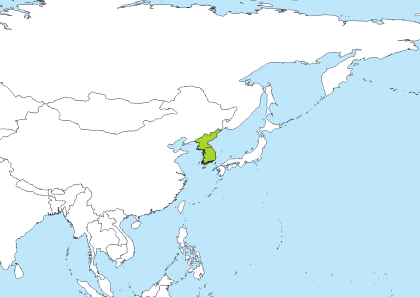
KST representations, usage and related time zones
- +09 - basic short
- +0900 - basic
- +09:00 - extended
- +0900 - sign character (+) followed by a four digit time providing hours (09) and minutes (00) of the offset. Indicates nine hour and zero minutes time differences to the east of the zero meridian.
- India - Military abbreviation for KST
- I - short form of 'India'
- Asia/Pyongyang
- Asia/Seoul
- ROK
- Korea Standard Time - UTC +9
- Pyongyang Time - UTC +8:30
- AWDT - Australian Western Daylight Time
- CHOST - Choibalsan Summer Time
- I - India Time Zone
- IRKST - Irkutsk Summer Time
- JST - Japan Standard Time
- KST - Korea Standard Time
- PWT - Palau Time
- TLT - East Timor Time
- ULAST - Ulaanbaatar Summer Time
- WIT - Eastern Indonesian Time
- YAKT - Yakutsk Time
